Experts share why leaves change and predict when to hit the road for the colorful show.

Athy Mathews loves to watch the sugar maples turn yellow, orange and red at Great Smoky Mountains National Park near her home. “Sometimes you’ll see all three colors on the same leaf,” she says. An associate professor of biology at Western Carolina University, Kathy has spent 10 years studying and predicting peak viewing time for fall colors. She still marvels at the magic of fall, when green leaves transform into brilliant eye-catching copper shades.
This phenomenon occurs when trees stop producing chlorophyll, a green substance in leaves that interacts with sunlight throughout spring and summer to make food for trees to grow. Changing weather conditions in fall tell the trees it’s time to store sugars in the roots for next year’s growth. As the cool temperatures approach, daylight hours shorten and the chlorophyll breaks down, revealing the bright hidden hues.
“It is more efficient for the tree to do this than to maintain its leaves year-round,” Kathy says. Some trees, including maples, even create a new pigment—a deep rich red.
هذه القصة مأخوذة من طبعة October/November 2018 من Birds & Bloom.
ابدأ النسخة التجريبية المجانية من Magzter GOLD لمدة 7 أيام للوصول إلى آلاف القصص المتميزة المنسقة وأكثر من 9,000 مجلة وصحيفة.
بالفعل مشترك ? تسجيل الدخول
هذه القصة مأخوذة من طبعة October/November 2018 من Birds & Bloom.
ابدأ النسخة التجريبية المجانية من Magzter GOLD لمدة 7 أيام للوصول إلى آلاف القصص المتميزة المنسقة وأكثر من 9,000 مجلة وصحيفة.
بالفعل مشترك? تسجيل الدخول
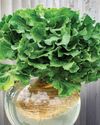
Basics of Hydroponics
Use these top tips and plant picks to have a successful soil-free garden
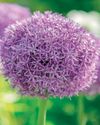
Rooted in Resilience
These hardy perennials will thrive in most zones
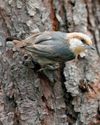
Social and Supportive
Brown-headed nuthatches take a helpful approach to raising their young

All About Owl Pellets
And why you should give a hoot about them
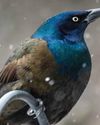
Ask the Experts
Advice from our pros about houseplants, bird feeding and more
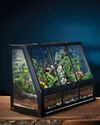
BRING THE OUTDOORS IN
Making a terrarium is about as close as you can get to a Zen DIY project. Once you have gathered the proper materials and squared away your plant selections, it's as simple as layering it all together and watching your mini ecosystem thrive. Here, I'll walk you through my foolproof process and cover all the required elements for good filtration, healthy soil, strong root growth and resistance against fungus and disease.
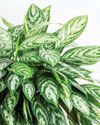
GROW THIS. NOT THAT
Six easy-to-grow houseplants—and six that may not be the right choice for you

Winter MAGIC
Forecasts may be frigid, but grab your binoculars because birding opportunities are still incredible
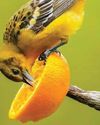
Sense or Nonsense? - Why some birds can taste and smell - but others can't
Does a porcelain berry taste like a blueberry to a gray catbird? Does a block of lard smell like frying bacon to a northern flicker? The short answer is no. While some avian species do have a well-adapted sense of taste or smell, they can't distinguish between flavors and odors the way humans can. They're not picking up every ingredient in the suet you put out, says José Ramírez-Garofalo, an ornithology researcher at Rutgers University in New Jersey and the director of Freshkills Biological Station in Staten Island, New York.
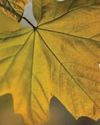
Maple Mania - Amazing facts about this fall foliage mainstay
Amazing facts about this fall foliage mainstay